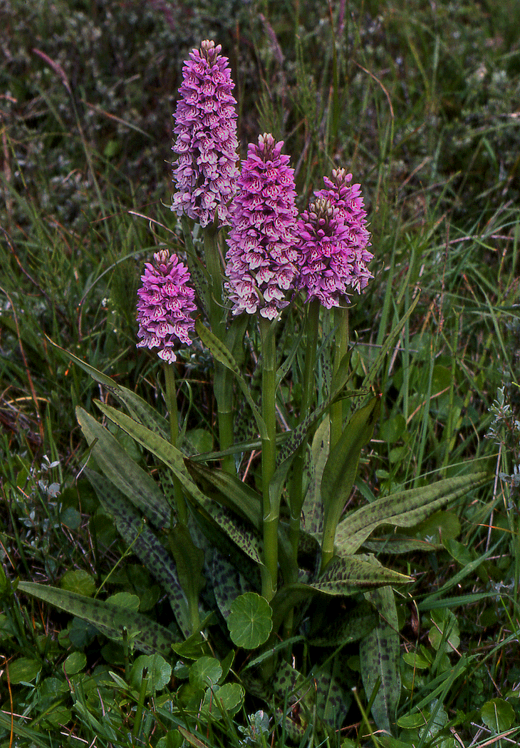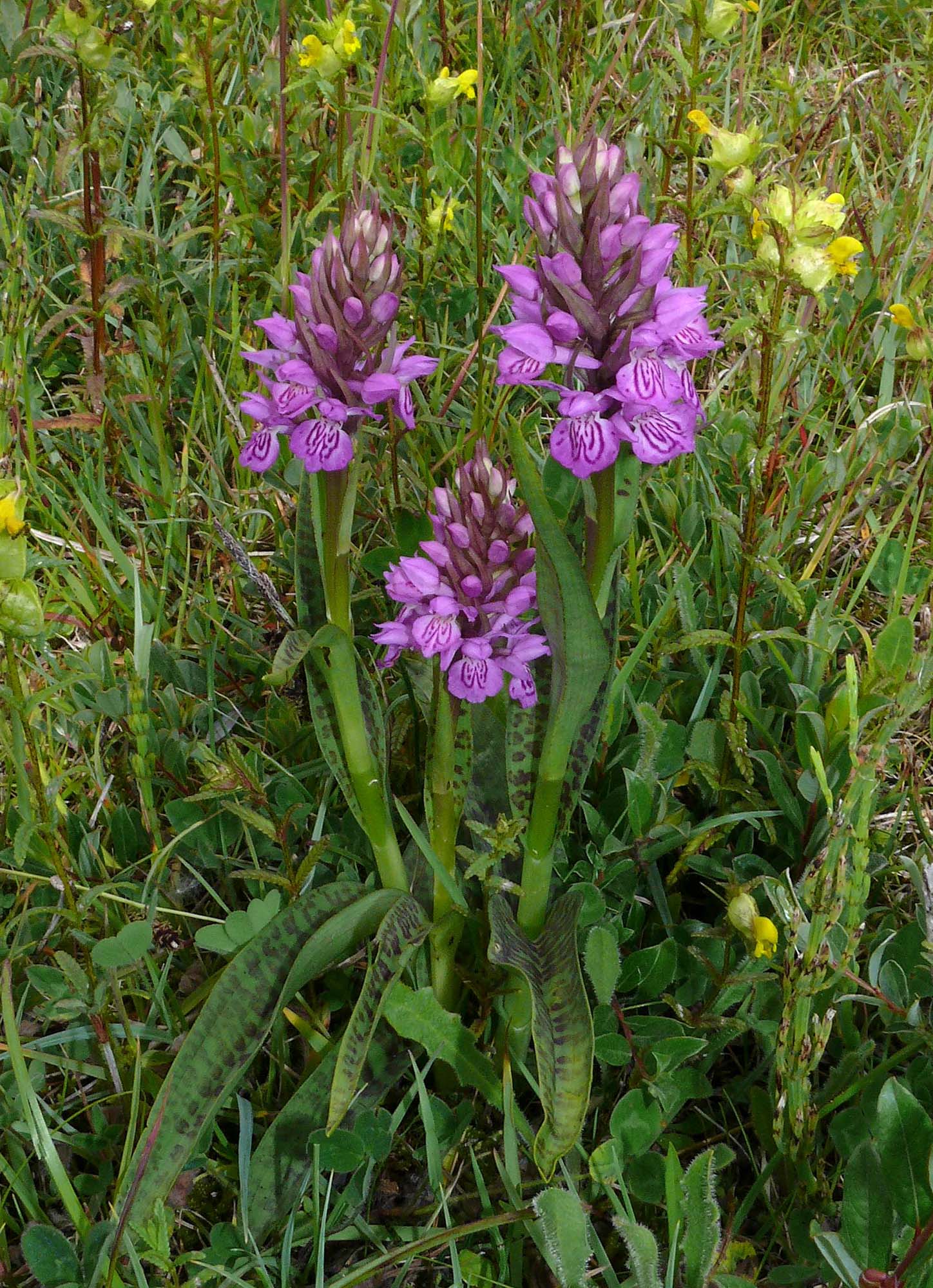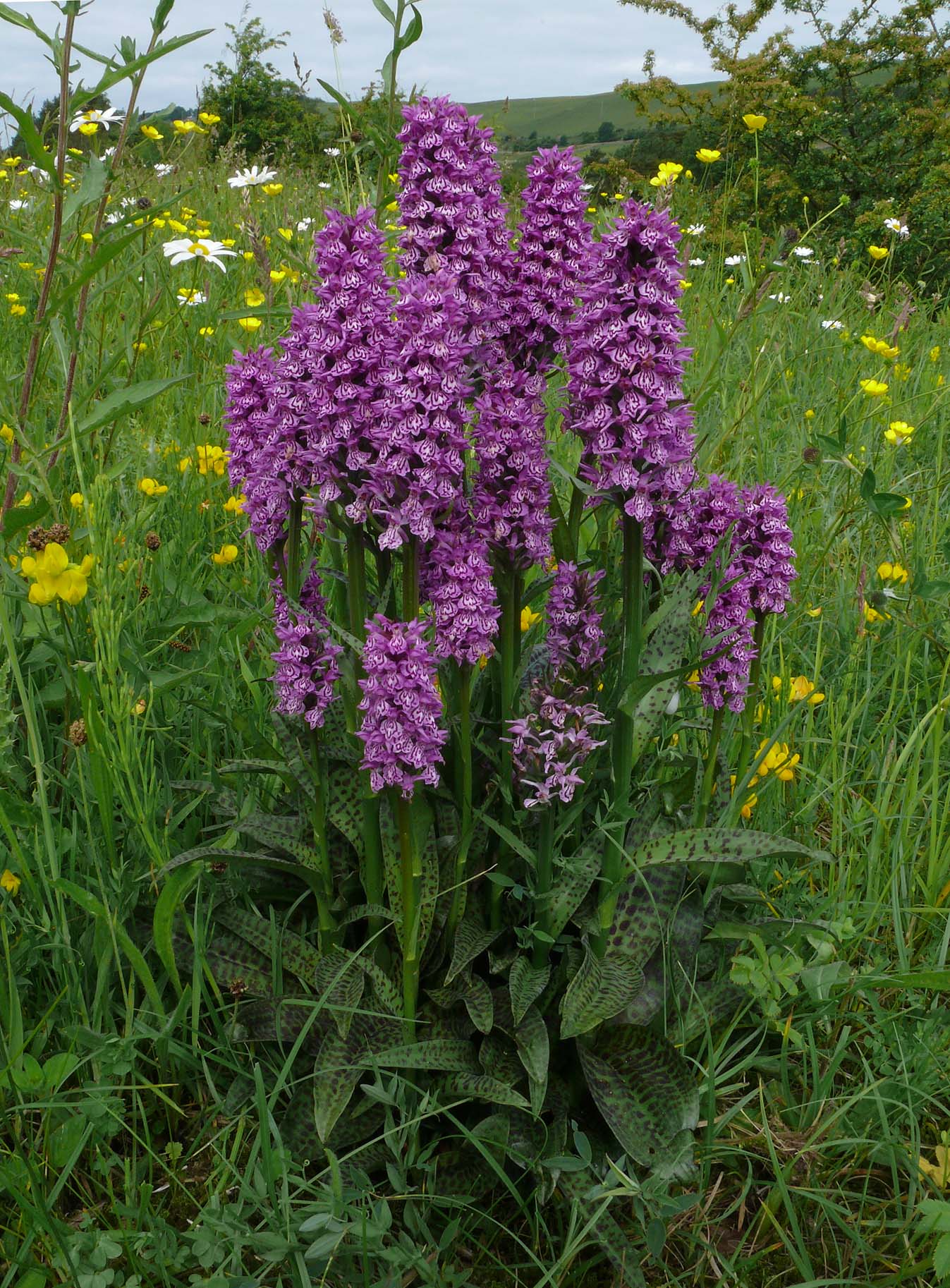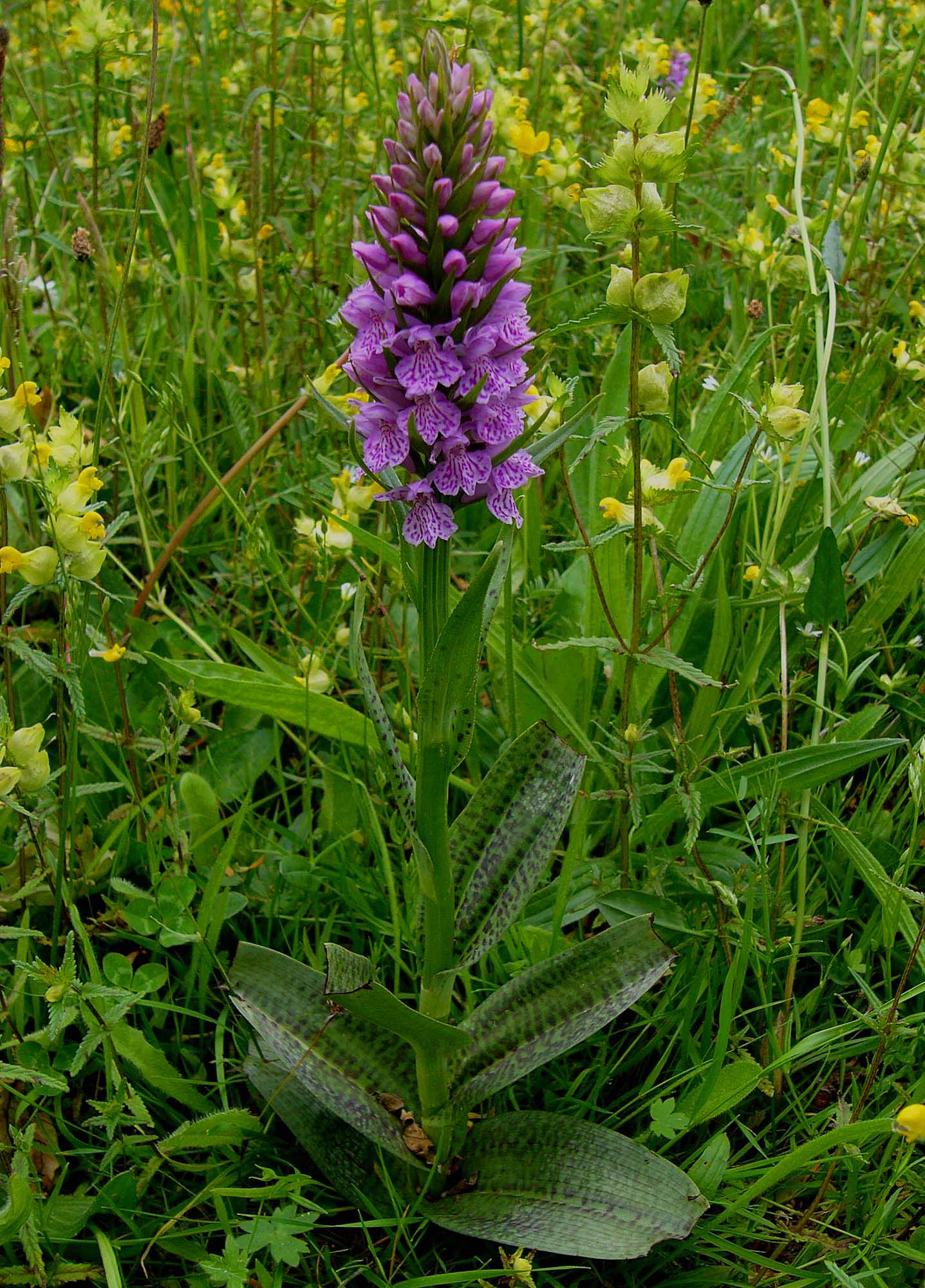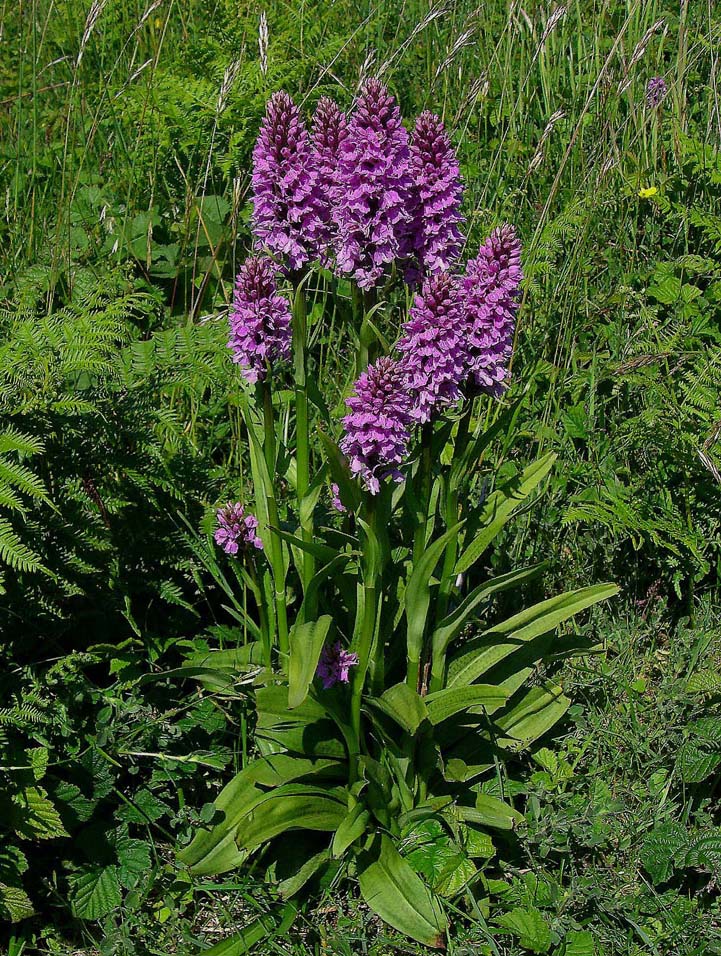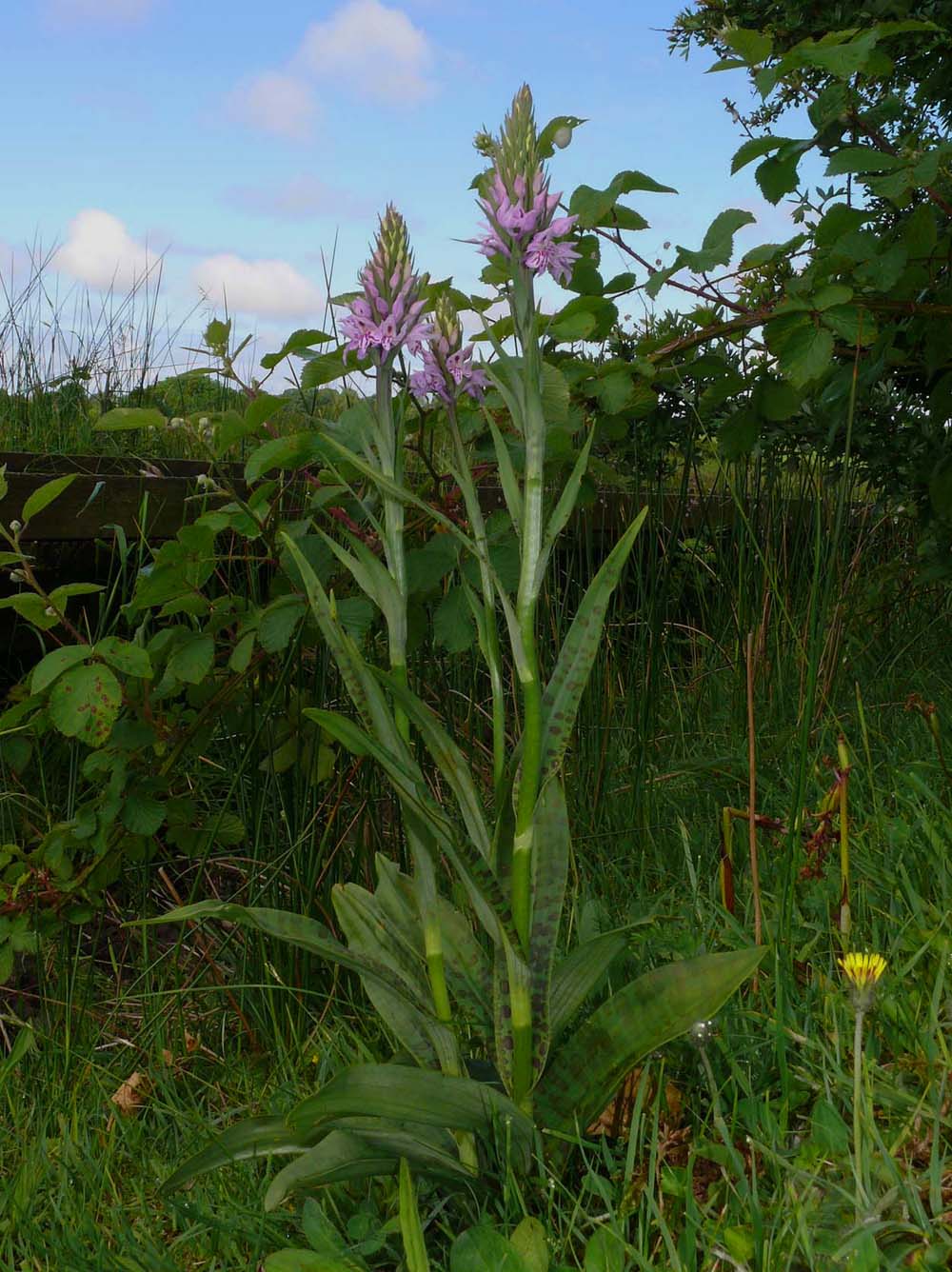D. praetermissa var junialis has long been recognized in the UK, being known commonly as the Leopard
Orchid and considered then to be a hybrid between D. praetermissa and D. fucshii. This was however an
erroneous conclusion and the recent (2012) Bateman/Denholm study into UK and Irish tetraploid marsh
orchids now confirms that this plant is not in fact of hybrid origin and is a variety of D. praetermissa
that had been recognized as an intraspecific taxon by Vermuelen in the Netherlands as long ago as 1933.
The decision by Messrs Bateman and Denholm to support this orchid as an accepted variety was not taken
without some critical reservations given that molecular analysis did not reveal any significant diversities
and that var junialis almost always appeared as an individual plant or cluster within ordinary praetermissa
colonies. Studies from abroad however revealed evidence of restricted gene-flow and "pure" var junalis
populations and this has currently convinced them to give an equivocal thumbs up to it status as a variety.
As has just been mentioned, var junialis normally occurs in small numbers amongst D. praetermissa populations and although it can display a marked variation in appearance, it is typically a robust plant with deeplycoloured flowers and heavily spotted leaves. It can however appear in a much less striking form,
very little different from the paler, unspotted D. praetermissa. (see photograph 9). A characteristic which
seems less variable however is the robust form of this orchid which will frequently form a large multi-stemmed clump of impressive proportions.
Although once thought to be a plant of the south of England, it is now known to occur at least as far north
as the south of Scotland as well as in Holland. The illustrations are from Cumbria (UK) and Wales and date
from early July.


